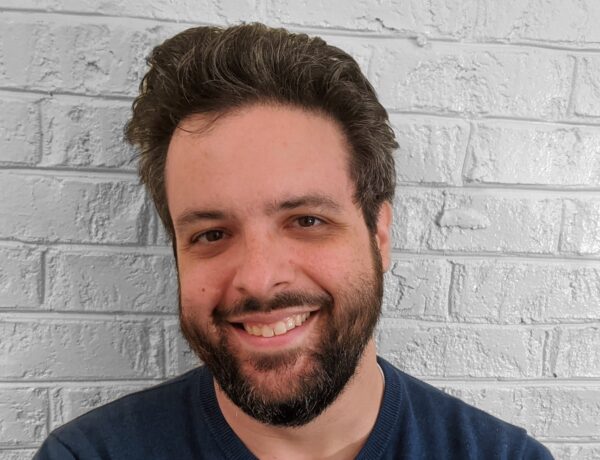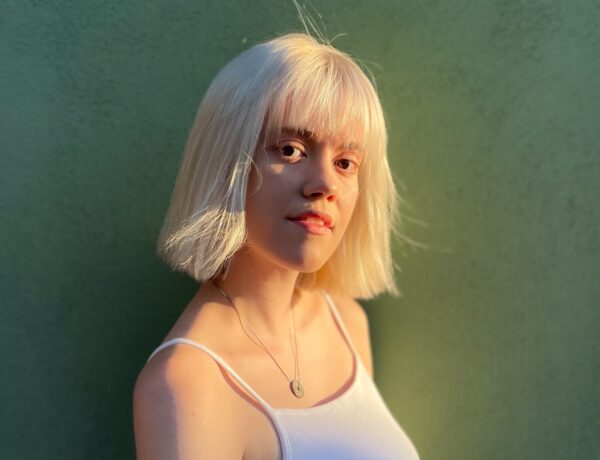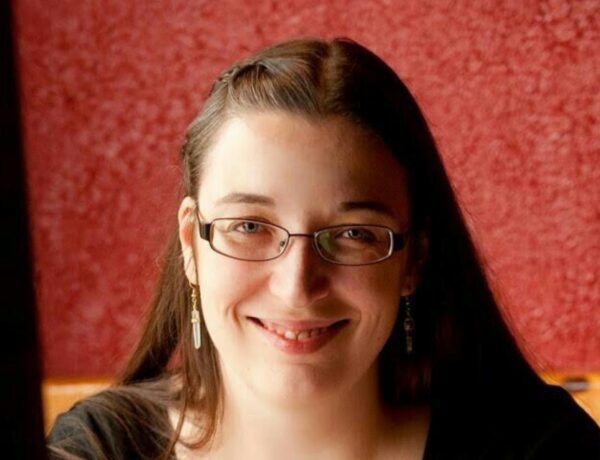Emanuel Xavier is a poet, spoken word artist, author, editor, and LGBTQ activist born and raised in Brooklyn. As a homeless gay teenager, he found solace in the ball scene and was later recognized for his work as a spoken word artist at national colleges and universities.
He has been honored with an LGBTQ Icon award by The Equality Forum and a New York City Council Citation Award. His work has also received critical acclaim, including an International Latino Book Award and Lambda Literary Award nominations.
He has authored several poetry books, including Selected Poems of Emanuel Xavier. Xavier founded the Penguin Random House LGBTQ Network and serves on the board of The Publishing Triangle. He continues to read his work across the country.
Looking for inspiration to help you achieve your writing goals? Subscribe to our newsletter for exclusive insights into the routines, habits, and techniques of some of the most celebrated authors in history.
Hi Emanuel, welcome to Famous Writing Routines, great to have you here with us today! You’ve been recognized as an LGBTQ Icon, and your work has been celebrated for its representation of queer Latinx experiences. How important is it to you to center these identities in your writing, and how has that impacted your creative process?
When I was starting out in the spoken word poetry scene in the ‘90s, there were only a handful of us that were openly queer in a movement that was dominated by rap and hip hop. I had already been part of NYC’s underground queer culture so I had nothing to lose.
For me, it was all about speaking out and sharing your truth in a creative setting so there was no way I could not be myself. There were many challenges to being both openly gay and a person of color on the literary scene. Also, I had no formal education or background as a writer so I had limited resources and minimal support. With the new millennium, things progressed and I found myself at the forefront but then I experienced a hate crime which affected me both physically and emotionally.
I had survived so much violence in my personal life to find success as a writer only to find myself partially deaf just when I was about to peak. I focused on editing anthologies that celebrated LGBTQ+ poets of color and that gave me resolution.
As the world changed and diversity, equity, and inclusion became buzz words, many LGBTQ+ poets of color found great success but I wasn’t part of the conversation. It didn’t help that I published books with titles like If Jesus Were Gay or that I wasn’t part of any academic group or that I wasn’t part of the poetry scene. It was always important for me to live my truth and share these experiences in my writing and it impacts my creative process because I’ve always been more concerned with inspiring and encouraging others to do the same than being popular.
You’ve written and edited several collections of poetry, including Pier Queen, Americano, and Mariposas. What themes do you explore in your work, and how have you seen your writing evolve over the years?
When I started out, I remember being told that my poetry was too political and I wrote too much about religion and sex. I also never had any formal training as a writer. All I could afford to do was spend a lot of time reading and learn how to be a better writer on my own. I’ve had great support from the literary community throughout the years but I never had any specific mentor.
I’ve also held back from being that for anyone only because I still feel like I’m learning—even after all these years. My failures and successes are my own but I still enjoy writing about what is important to me. The only difference is now I’m not concerned with winning a slam poetry competition.
As the founder of the Penguin Random House LGBTQ Network and someone who sits on the Board of The Publishing Triangle, what motivated you to get involved in the publishing industry in this way, and what impact do you hope to have through your work in those spaces?
As a queer person of color, I hope to be a source of inspiration for minorities in publishing. I was a homeless gay teen who survived life on the West Side Highway piers and I managed to become a successful writer. I was only in an administrative position but helped start an LGBTQ+ group for one of the largest publishing houses in the world. I never received any major awards or recognition but was invited to sit on the Board of one of the most renown LGBTQ+ literary foundations. Through these spaces, I hope to celebrate our LGBTQ+ authors and books in the way that they deserve to be.
You’ve been a spoken word artist for over twenty-five years and have performed at colleges and universities across the country. How does performing your work in front of an audience differ from writing it for the page, and how do you adapt your work to fit those different contexts?
I love sharing poetry in front of audiences. Reading a poem is an opportunity to bring the words to life. Writing is a solitary act and so is reading a book. The reader may interpret a poem in whatever way is unique to them. As a spoken word artist who competed in many slam poetry competitions, you learn quickly that you only have about three minutes to keep an audience’s attention. That time span is your chance to take the poem to a whole new level. It helps to allow your emotions to run through the words and connect with the crowd.
I include poems in my setlist that get a rise out of people, whether it’s humor or reflection or anger. I may be a gay Latinx poet sharing a poem up on the stage to a diverse audience but we may all share universal truths. Everyone has been heartbroken or struggled in some way so they can somehow relate. I suppose when I was starting out, I was more eager to write poems that would do well in a live reading or slam competition.
I’m still mostly a storyteller and find myself writing prose and list poems that would work well on a stage but I am maybe more comfortable with myself as a poet. There are so many exciting new voices that are also incredible writers and that is truly motivating.
Do you struggle to stay focused while writing? You’re not alone! That’s why Famous Writing Routines recommends Freedom – the ultimate app and website blocker for Mac, Windows, Android, iOS, and Chrome. With over 2.5 million users, Freedom helps writers stay on task and avoid distractions. Get started for free today and reclaim your productivity!
You’ve been involved in so many different aspects of the literary world, from writing and editing to performing and organizing. What are some of the challenges you’ve faced in your career, and how have you overcome them?
As noted, it was a very different world in literature for openly gay people of color in the ‘90s. It was also more challenging for me personally because I was dubbed a “street poet.” It was meant to undermine my work as I had no formal education or credentials as a writer.
However, it was also used against me as I had literally spent time out on the streets and survived as an underage hustler. Former sex workers aren’t often welcome into the highbrow world of literature. I took comfort in learning that Maya Angelou had been a sex worker and proud of it though that history is often sidelined. Never mind the fact that I was gay and brown, I had been a prostitute so there was a lot of white privilege I had to make my way through in literary society.
I would read in front of lively New Yorkers at the Nuyorican Poets Café and then travel to read at artsy literary events where the audience did not know what the hell to make of myself or spoken word poetry. It was a very different time and bringing up politics, sex, or religion in poetry was oddly not cool in certain circles. It was as if the entire Beatnik generation had never even existed. We weren’t doing anything new. We were just continuing a long tradition of oral history where art was used to provoke conversation. So I put together my own events and invited the poets I wanted to share a stage with.
I wanted to create our own safe spaces where we could support and inspire one another. That evolved to editing anthologies which helped us reach wider audiences. We pushed through those boundaries with so many odds stacked against us. There is still so much work to do in the publishing industry as far as reflecting the diversity in the world we live in but it is far better than it was for many of us back then.
Can you tell us about your writing routine? What does a typical day look like for you?
Working in publishing adds to the challenge of writing because you often just want to chill out at the end of the day. However, I try to set some time aside to read and write. Every time I get asked that question at events, I would say I put on some Alicia Keys and light a candle as if I was about to make love instead of writing.
Yes, that used to be my approach to writing poetry because the right setting helps unleash your emotions. However, I don’t always write and nowadays I’m just happy to find time to read. A good book usually sparks something and I keep my writing journal close by. Sometimes I jot down words or thoughts and other times I find myself writing entire poems.
When I get the chance, if I think there’s worth in the poem, I transfer the words to my laptop where I find myself editing during the process. I may then share with my husband if I think it’s something worth submitting or publishing. Many things are simply kept in the journals so I could look at them down the road. I’m not a big drinker and I don’t smoke so that dilutes the glamor of it all.
A typical day for me during the week is busy with work, going to the gym, ordering a DoorDash delivery, spending some time reading and writing, and then watching whatever we recorded on the DVR with my husband. It’s totally fine not to write all the time because just living your life often provides a source of inspiration.
If you could have a conversation with any author throughout history about their writing routine and creative process, who would that person be?
Dorothy Parker! She was witty, managed to write timeless poems, and had quite the lively social life. I would have loved to sit down and have a kiki with her. There would be so much shade we’d probably conjure the spirit of Oscar Wilde.
I’d love to know about the books you’re reading at the moment. What have been some of your favorite recent reads?
I was really into this novel by Seán Hewitt, All Down Darkness Wide. It was so beautiful and well written. As for poetry, I loved Urbanshee by Siaara Freeman. I was turning the pages like “Yaaassss, Queen!” I’m currently enjoying the poetry collections Promises of Gold by José Olivarez and Diaries of a Terrorist by Christopher Soto.
What does your current writing workspace look like?
Before getting married, when I lived in Bushwick and my cat Alexis was alive, we would get comfortable together in bed and I would enjoy writing that way. My husband just got me a new Lenovo laptop for Christmas which I love. I have my own office in our new home but, since the pandemic, I’m fully remote so I try to separate my work in publishing from my personal writing by stepping away. I’ll grab a book, my glasses, journal, pen and the chromebook and sit on the couch away from my workspace.
There’s a Basquiat print that I insisted on getting. He cruised me one day in the ‘80s while I was working the West Side Highway piers as a hustler and I didn’t even know who he was. He was likely stoned out of his mind and wondering how young I was to be out on the streets. A short time after, I saw a picture of him in the newspapers and found out he had been a famous artist. I think I was more impressed that he had dated Madonna.
Anyways, I came to absolutely love his work and appreciate that, even though he never received a formal art education, he managed to become one of the most important artists of our time. It reminds me that it’s okay to be an accessible artist who was once written off as a “street poet.”

Affiliate disclaimer: Some links on this website are affiliate links. We may earn a small commission if you make a purchase through these links, but only promote products we truly believe in. We disclose affiliate links and give honest reviews.



No Comments